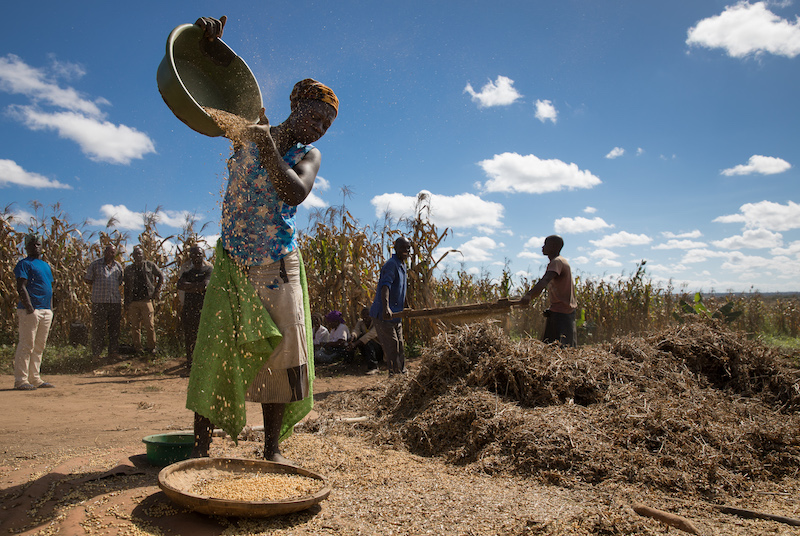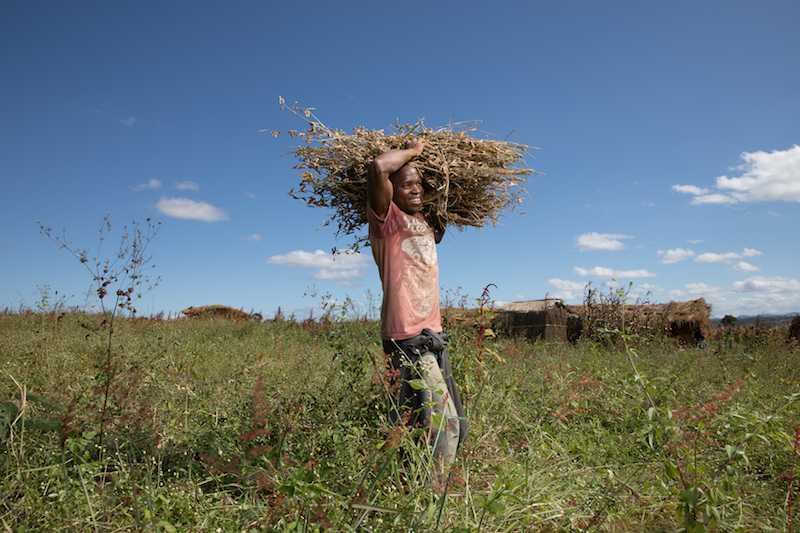
Companies in the animal production chain in Europe and elsewhere are increasingly investing in reducing the negative impacts of soy production in South America. This is important work, and is supported by Solidaridad. However, our work in Mozambique also shows that investments in sustainable soy production can have clear positive impact.
Demand for Soy is Growing Across Africa
In a large number of African countries demand for soy is expanding yearly with double digit figures. The main reason is not so much increasing human consumption, but the growing need for proteins in poultry feed.
Mozambique is one of the countries where demand has been growing. This is partly as a result of a successful Technoserve programme. As a result of this programme, poultry production in Mozambique has increased recently, leading to a large demand for protein rich feed. Soy consumption is estimated to be around 60,000 tons, half of which is imported.
In central Mozambique, Solidaridad and its partners have so far supported 2000 medium sized farmers in three farmers groups (Nsuzumire, Domue and Tilimbique) to improve soy production. In addition, a suite of improvements have been introduced. This includes the use of better seeds, proper seed inoculation to improve nitrogen capturing, mulching and responsible pesticide use. As a result, average soy production went up from 1.2 to 1.5 ton per hectare.

Supporting Farmers to Improve Production
In total, a group of 142 lead farmers (the majority women) were trained to support farmers. Other key results of this programme include the fact that in an area where 97% of farmers had no title deeds, more than 80% now do. This is crucial for farm development as it will enable farmers to have security and lend money and invest. In addition, safe application and protected clothing for pesticide use have been introduced.
To reduce deforestation, farmers have been instructed to improve production on existing land and not encroach on the forest. The farmers themselves then requested support to make the use of firewood more efficient to reduce pressure on the forest. Workers have been instructed about their rights, such as minimum wage. Most impressively, these farmers now are the first in Africa to be certified according to the standard of the Round Table for Responsible Soy (RTRS).
First Certified African Farmers of the RTRS
This project is supported by KDV, the Dutch supply chain organization for sustainable pork. In KDV, 300 Dutch pork farmers work together with partners in the pork chain aiming at producing pork in a responsible way. As part of this objective, they also invest in the sustainability of soy and decided to invest in a place where their support would have maximum impact on small farmers.
With the positive outcome of this Mozambique project, Solidaridad is now ready to scale this approach to other African countries such as Zambia and Malawi. This is important because we see a gap that needs to be bridged in a sustainable way.
In 2017, African countries imported around four million tons of soymeal from countries such as Argentina. This is against an estimated local production of two million tonnes, 90% of which comes from farms with less than around five hectares.
In several African countries, large scale investment plans to bridge this gap have been announced, however most have not got off the ground. This is why we are working to bridge this gap, however we cannot do this alone. We need more dedicated partners who to invest in our approach.
We would like to encourage the private and public sector to step in and be part of the work to maximize the positive impact of soy.
